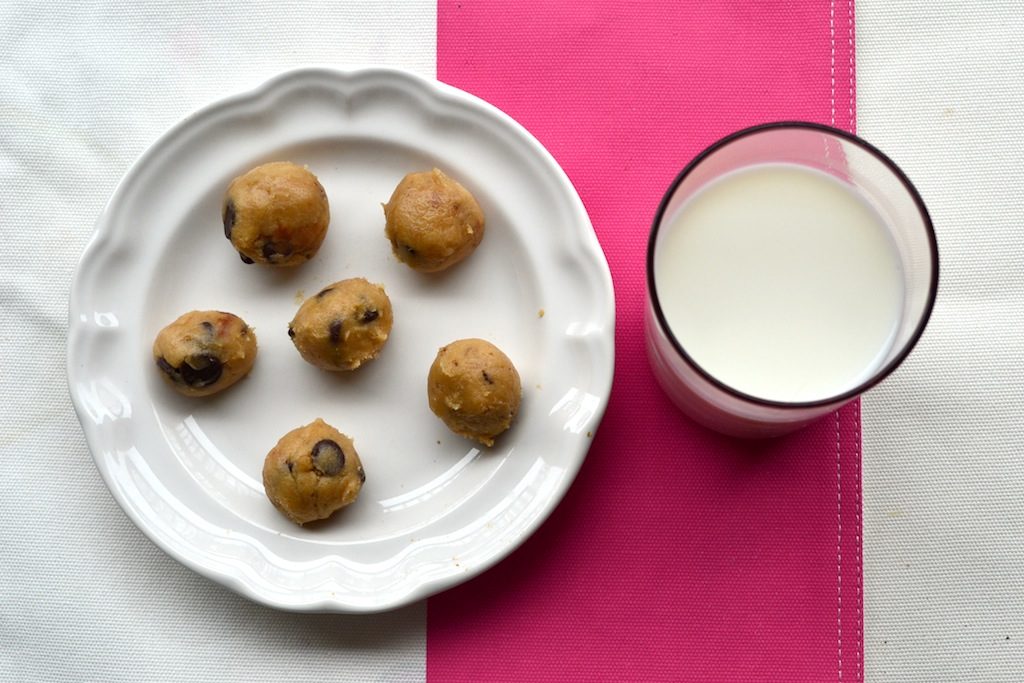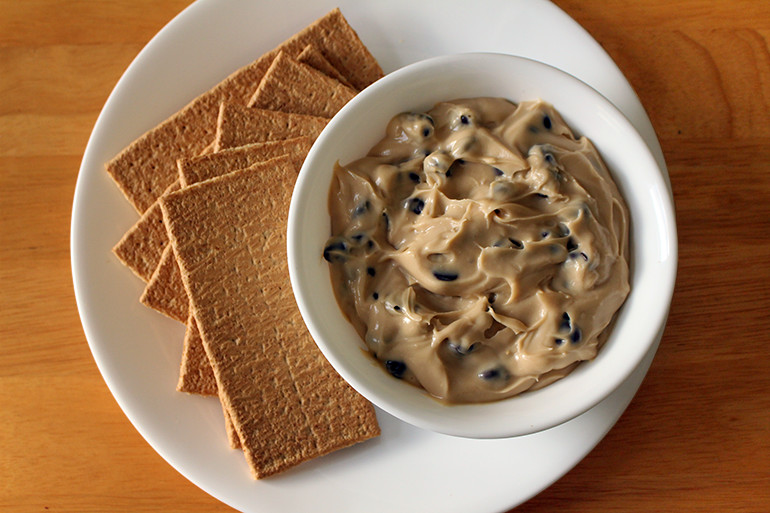If there was a real-life forbidden fruit, cookie dough would be it. We have been told time and time again to not eat it, yet we still find ourselves sneaking a bite here and there while making cookies, or even buying a tub of Nestle Toll House dough at the store and eating it by yourself (guilty).
For years, our mothers have told us that raw cookie dough could make you sick, but it’s pretty rare these days to hear about someone getting sick or even dying from raw cookie dough. So we set out to discover if cookie dough is really that bad for you.

Photo by Malia Budd
The most commonly cited reason to not eat raw cookie dough is the risk of salmonella from raw eggs. However, according to Dr. Adrienne Kassis, a primary care provider at One Medical group, only about 1 in every 20,000 eggs is contaminated, and that number decreases every year. Furthermore, if an egg is pasteurized, as they are in Nestle Toll House dough, the chance of getting salmonella decreases even more.
Depending on who you talk to, some health care professionals even say that eating raw eggs is actually good for your health, as cooking causes a minor loss in nutrients. They mention the risk of contracting salmonella, but explain that the chances are low and the benefits outweigh the risks.

Photo by Malia Budd
But what happens when cookie dough actually is detrimental to your health? In 2009, a woman by the name of Linda Rivera died from E. Coli, a bacteria similar to salmonella. E. Coli can occur in a variety of foods, including the Nestle Toll House cookie dough that Rivera ate. Although she did not die immediately, doctors believe that the cause of her health problems and eventual death were due to the bacteria that was found in the cookie dough that she ate.
Similarly, in the United States, approximately 42,000 cases of salmonella are reported each year, causing 400 deaths, however, not all of these cases involve raw eggs. Although there are no specific numbers, researchers believe that the number of cases involving raw eggs doesn’t even reach the thousands.

Photo by Rayna Mohrmann
If you want to be cautious about how you eat your cookie dough, it is recommended that you keep your eggs at 45°F or below at all times. Below 45°, salmonella bacteria can’t grow. Also, make your own cookie dough.
Even though we all know that homemade cookies taste better, it’s better because you know where your ingredients are coming from. When something like an e. Coli breakout happens in Nestle Toll House dough, nobody can be sure where the bacteria originated. Yes, it can come from the eggs, but it can also come from something as seemingly harmless as flour.
When we set out on our quest to discover the answer to the question of whether or not cookie dough is really that bad for you, we expected one solid answer. However, it depends on who you talk to and what their opinions are. It also depends on how badly you’re willing to risk getting sick. Fortunately, your chances of getting sick are pretty slim. So go ahead and lick the spoon, just make sure you’re aware of the risk that’s involved.


